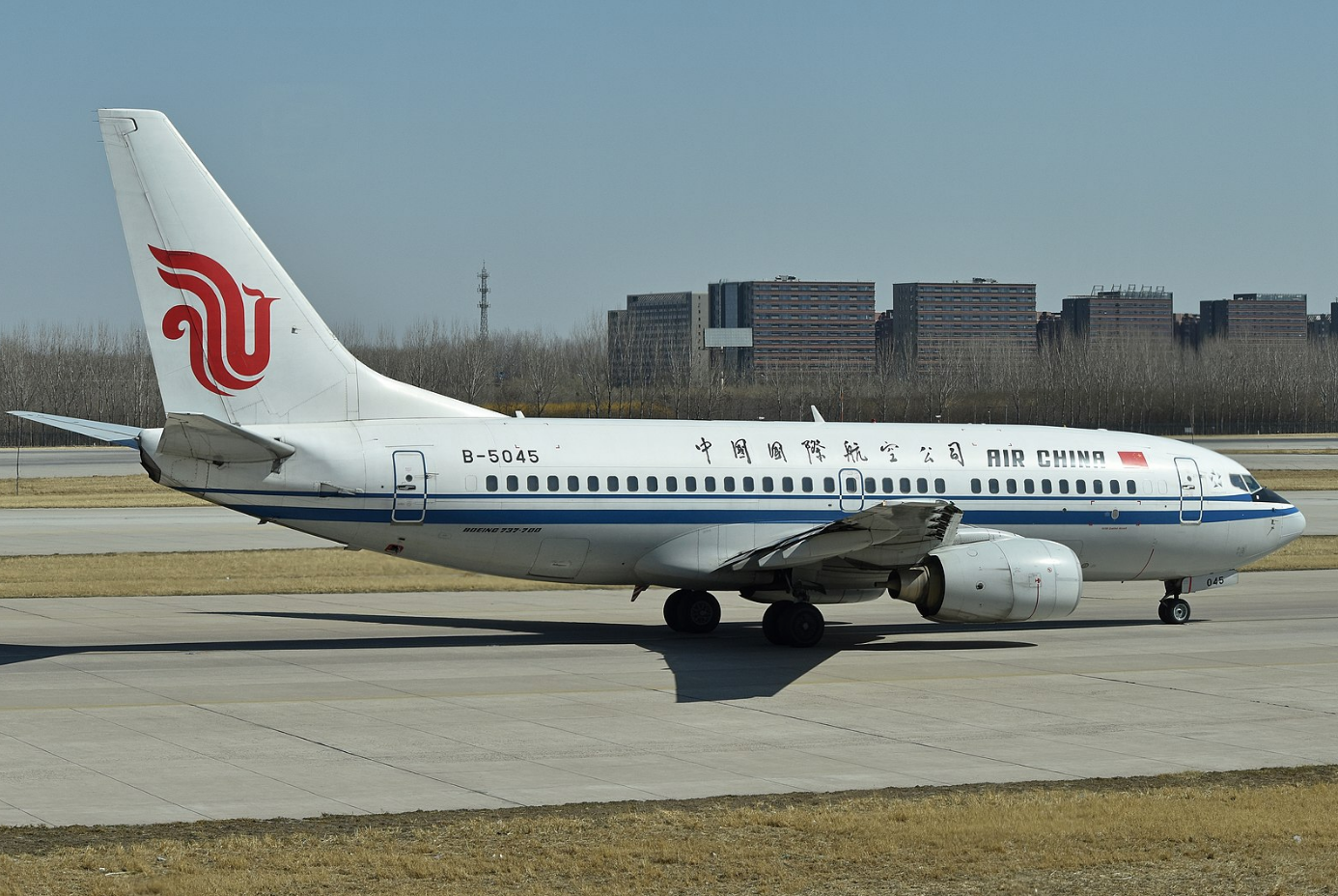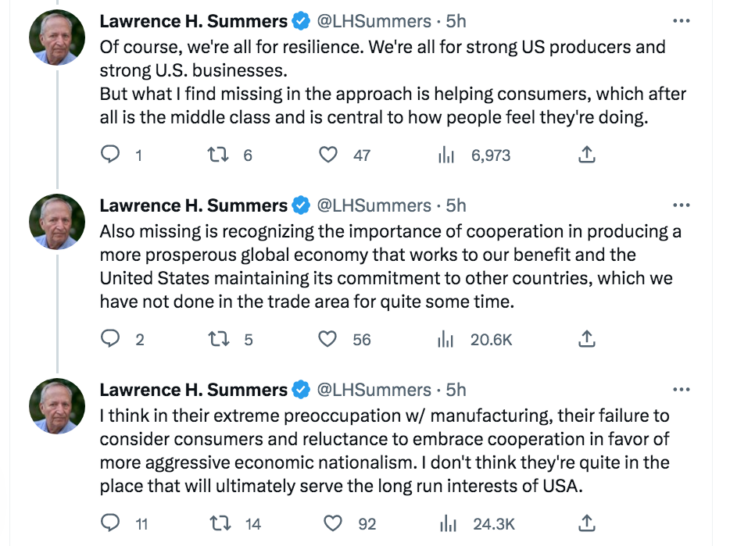
The price of flying from the US to China has risen very sharply in recent years. The primary cause is economic nationalism. Here’s the Financial Times:
The US has offered to grant Chinese airlines the same number of weekly flights between both countries as American carriers — but only if they agree not to fly over Russia, according to six people familiar with the talks.
Moscow banned US carriers from flying over the country after Washington prohibited Russian airlines from flying to the US in the wake of Russia’s full-scale invasion of Ukraine. Chinese airlines are not banned from Russian airspace.
US carriers have 12 weekly flights to China, while Chinese airlines have eight to the US. The American carriers face higher fuel costs than their Chinese rivals whose routes over Russia to the US are much shorter.
Some pundits defend economic nationalism on “national security” grounds. And yet that argument obviously does not apply to commercial airline flights. Nor is this about a mythical “level playing field”, as the punitive action is aimed at Chinese airlines, not those of other countries that fly over Russia:
The Chinese official said another reason not to accept the US condition about circumventing Russia was that airlines from other countries, such as India and the UAE, flew over Russia without facing repercussions in the US.
Russia’s ban on US airlines flying over their territory does give China a comparative advantage—but so what? A warm climate gives Honduran banana producers a comparative advantage over Minnesota banana producers. Consumers benefit when they can buy from the cheapest producers. So does society as a whole.
If the US government got its way, large quantities of jet fuel would be consumed for no good reason. What happened to climate change as a goal of the Biden administration? Is protecting the profits of US airlines more important than climate change?
And what happened to this mutually agreed upon goal?
The Chinese diplomat added that Xi and Biden had agreed on the need for more people-to-people exchanges between the countries when the leaders met at the G20 summit in Bali in November and stressed that more flights were needed to meet that goal.
Is discouraging interaction between the people of the world’s two greatest powers the best way to promote world peace?
I am frustrated by the frequent references to “national security”. Very little of US protectionism relates to sensitive areas. For instance, the Trump/Biden tariffs on Chinese goods were imposed with the expressed aim of reducing the US current account deficit. They failed miserably, because the deficit is caused by saving/investment imbalances, not a lack of tariffs.
PS. Larry Summers has a good twitter thread on how we are overdoing economic nationalism. Here’s an excerpt:

PPS. I hope to visit China later this year—if I can afford a ticket. As of now, I’d probably have to first fly to a third country, such as Japan.

READER COMMENTS
Airman Spry Shark
Apr 30 2023 at 8:59pm
Could it have to do with the fees Russia charges for overflight and the goal of denying funding for their I invasion of Ukraine? Doesn’t explain the lack of pressure on other countries whose airlines overfly Russia, admittedly.
Brandon
Apr 30 2023 at 9:39pm
Makes you wonder what the costs of political nationalism are…
Scott Sumner
May 1 2023 at 1:39am
Equally bad.
nobody.really
May 1 2023 at 1:53am
1: The US has policies imposing sanctions on people who knowingly traffic stolen goods. Should we decry such policies because they fail to consider the benefits that consumers get when they can buy stolen goods? Or do we recognize that these policies, while perhaps burdening consumers, advance other public policy goals?
Imagine that Russia rewards nations that refuse to side with Ukraine by granting those nations the right to fly through Russian airspace. The US is trying to encourage other nations to side with Ukraine, and therefore wants to increase the costs/lower the benefits of cooperating with Russia. Does blocking flights that use Russian air space seems like one plausible implementation of this strategy?
2: True, it would seem logical for the US to impose similar terms on India and the UAE. But if we’re talking about bilateral US/China negotiations, then it would not be surprising that the negotiations fail to encompass other nations.
3: And if the US has not imposed similar policies on India and the UAE, then does it make sense to characterize the US policy as “nationalist”? It seems like rather selective nationalism–not so much pro-US as anti-China.
4: Permit me to offer one possible explanation for US policy here: Perhaps polling shows that swing voters are especially threatened by China’s rising status, and less threatened by India and the UAE. In that case, the administration might look for opportunities to demonstrate that they’re standing up to the boogieman—because they anticipate that Republicans will run adds claiming that Democrats are “soft on China.”
Politics makes stupid bedfellows.
Scott Sumner
May 1 2023 at 2:35pm
“It seems like rather selective nationalism–not so much pro-US as anti-China.”
Our anti-Chinese attitude is partly driven by nationalism–fear of another country having a bigger economy than us.
If I thought this would help Ukraine then I’d support it. But I suspect it’s aimed at helping our airlines.
Scott H.
May 2 2023 at 6:25pm
My new theory — “everything is true to some extent” — would suggest a combination of these two processes at work. The genesis of the idea probably came to be via nobody.really’s proposal. The policy probably still exists (and continue to exist) because it butters the US airline’s bread.
This joint mechanism makes the resulting economic regulation that much stronger and insidious.
Andrew_FL
May 1 2023 at 10:01am
This seems to be an example of foreign policy which is hawkish toward Russia and China, not “economic nationalism”
BC
May 1 2023 at 11:36am
Most governments, like those in Russia and Iran, try to evade sanctions, sometimes enlisting the help of countries like China. Our government helps Russia impose its sanctions on Americans even when Chinese airlines could have helped in evading them.
Michael Sandifer
May 1 2023 at 12:53pm
This sort of thing will continue as long as a relative handful of voters in a small number of swing states in the midwest have such sway in Presidential elections.
TMC
May 1 2023 at 3:32pm
I’d call it a cost of us being weak in the face of previous Russian kidnappings. Russia could force a landing of any plane with US nationals on it and blackmail us with them. We, and they, know that we would cave in.
Comments are closed.